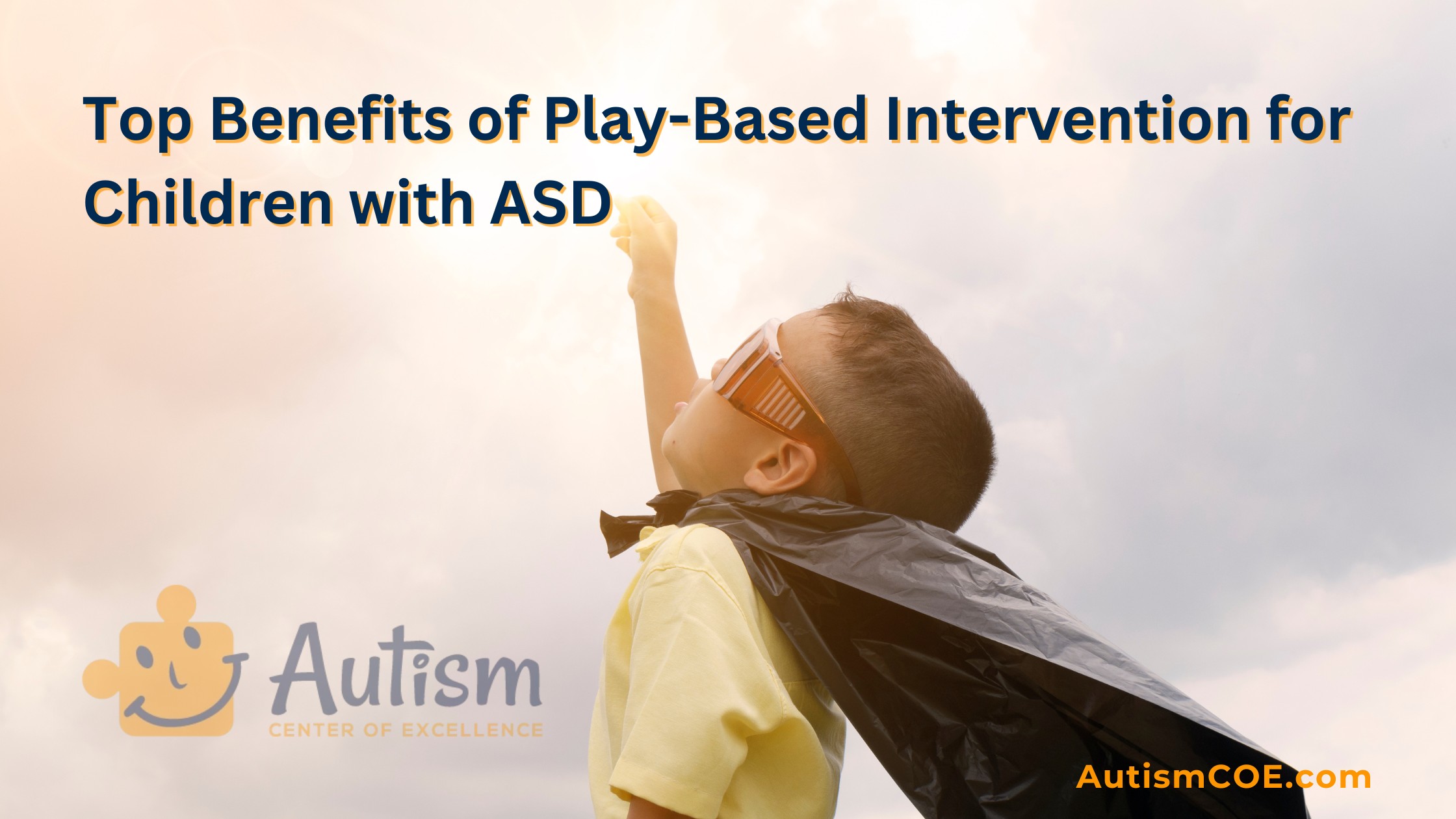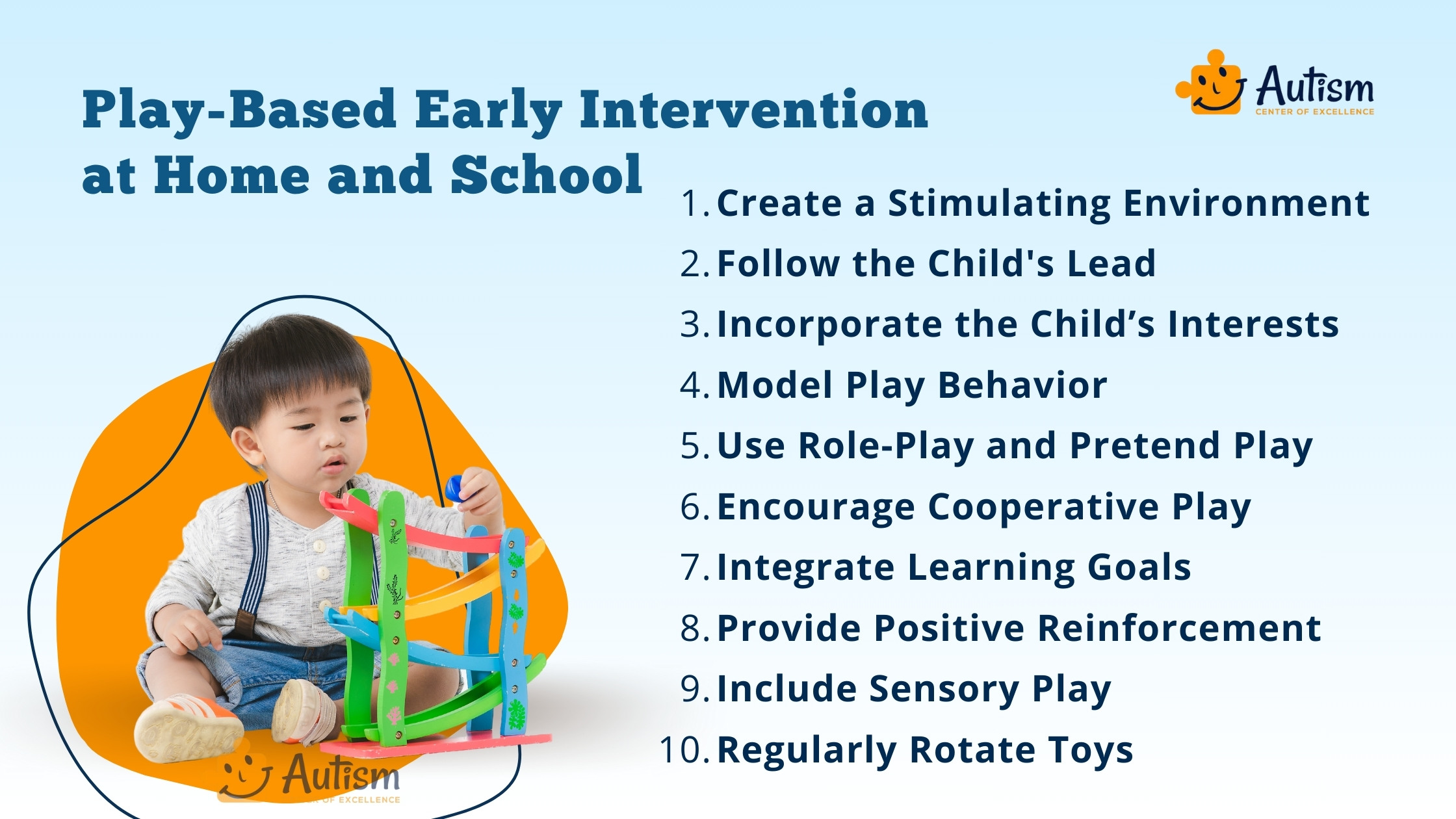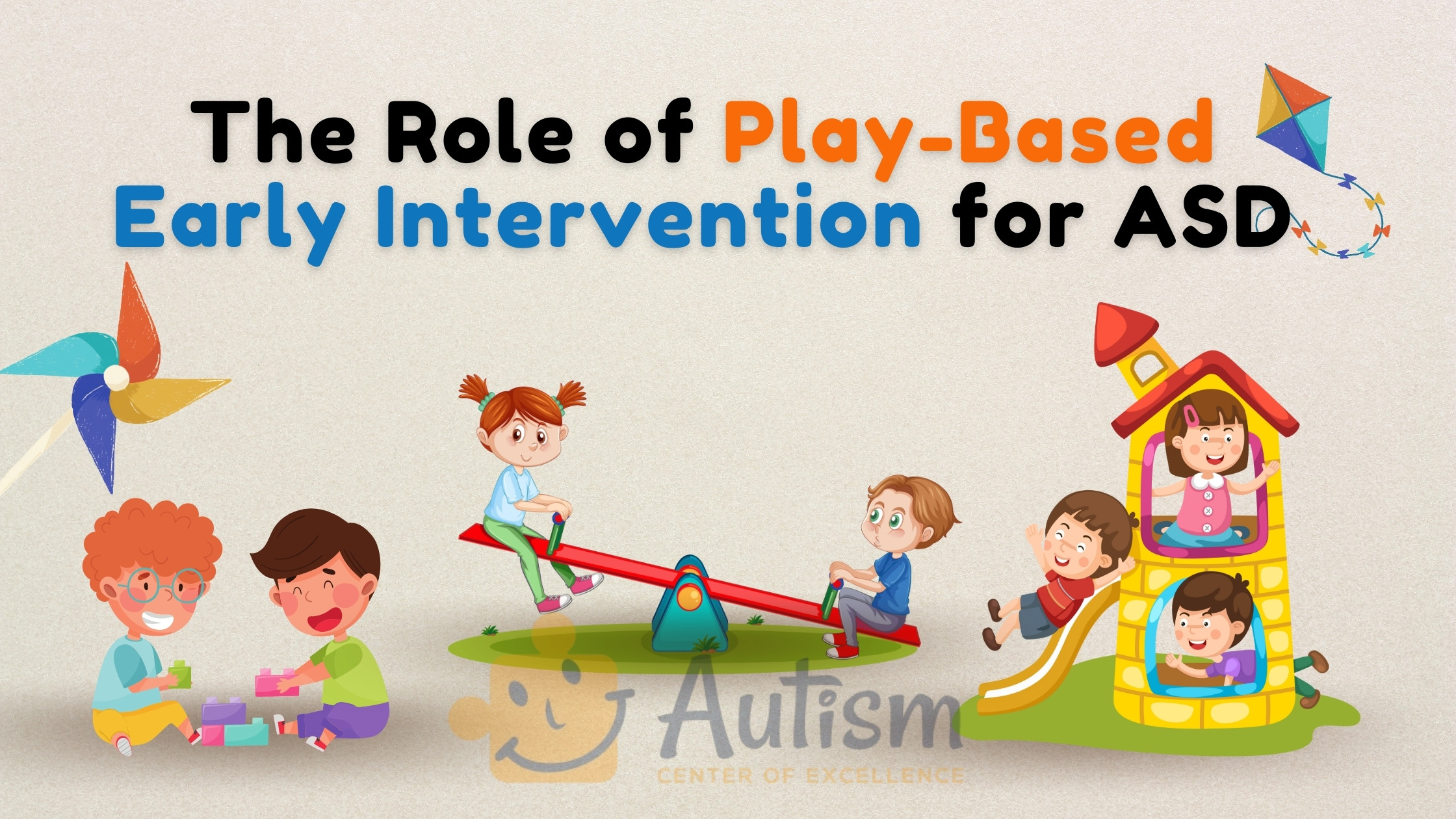Early intervention – play-based has been a pivotal approach in building fundamental skills in children with autism. Through role plays, storytelling, and creative arts, amongst many other ways, children are provided with an environment of freedom of expression and learning that interests them. Play-Based Early Intervention involves reinforcing the value of play to ensure that children with developmental needs are left in a nurturing, stimulating, and effective therapeutic environment.
What is Play-Based Early Intervention?
Play-based early intervention is a therapeutic approach that aims to teach and enhance a range of skills in children, especially in those with Developmental Disorders like Autism Spectrum Disorder (ASD), by using play as the main technique. Play is one of the important activities a child performs daily during the early years, and therapy is performed during such stages.
Play-based intervention disguises therapeutic activities as play. This way, the situation becomes less threatening for the child, and s/he becomes willing to learn. Early intervention activities in play therapy are supposed to be fun, interesting, and interactive, but they are also structured and have specific therapeutic goals. Social interactions, communication skills, motor skills, or cognitive development improvement may be included.
Versatility is the main feature of play-oriented intervention. The tasks can be changed to fit the child’s interests and skills to benefit the learning outcomes. Besides, the child-centered characteristic of this style boosts confidence and independence when the child is in control and has a proprietary ownership of his learning.
Play-Based Learning
It is a living education where educators create an enriched environment with materials and opportunities for children to wonder, explore, play, and learn. Play-based learning is the educational approach that exploits the natural inclination of children to play. In such situations, children are encouraged to play, pretend, construct, test, explore, and develop all the necessary cognitive, physical, social, and emotional skills.
This approach also includes the fact that children learn the most when they are active and interested, and it promotes the holistic development of a child, that is, not only academically but with living skills like problem-solving, creativity, and teamwork.

Top Benefits of Play-Based Intervention for Children with ASD
Play represents an essential activity for children with ASD. Moreover, it not only gives them a sense of fun and happy childhood moments, but it is also a good intervention method.
1️⃣ Enhanced Social Skills:
Play-based interventions aim to engage children in activities that promote participation, leading to the acquisition of critical social skills. Such tactics provide children with ASD an environment to participate in relationships and develop attachments with others.
2️⃣ Improved Communication:
The adaptive nature of play therapy for autism allows children to express themselves more freely, effectively improving their Communication Skills.
3️⃣ Reduced Anxiety and Stress:
Therapeutic play is a very pleasurable learning that removes anxiety and stress, which are usual for ASD, and allows children to focus on learning and acquiring new skills.
4️⃣ Better Parent-Child Interactions:
Play therapy sessions enable parents with their kids to understand the particular needs of their offspring. As a result, this understanding brings about better communication and Stronger Parent-Child Bonds.
5️⃣ Enhanced Emotional Regulation:
Play-based interventions have demonstrated significant results in improving emotional regulation in children with ASD. This improvement is essential as these children often experience increased social anxieties, compounding their social communication difficulties.
6️⃣ Overall Developmental Growth:
Play interventions help to develop cognitive, motor, self-help, and coping functions in children with ASD, which is good for their development.
Join Our Weekly Newsletters!
Subscribe now to stay updated with our latest email updates.

Implementing Play-Based Strategies at Home and School
Early childhood is a turning point in the child’s growth. This is a stage when children learn and develop fast while exploring the world. The role of play in Early Intervention is a critical dimension that leads to children’s cognitive, physical, social, and emotional growth.
Create a Safe and Stimulating Environment
Creating an environment that is secure and pleasant and provides some interesting and stimulating materials can lead children to investigate and play. This would cover playthings, art materials, blocks, and other child-friendly objects.
Follow the Child's Lead
Give the child an opportunity to decide what and how to play it. This approach can increase the pleasure of the play for the child and, as a result, can promote the child’s involvement and learning.
Incorporate the Child’s Interests
The use of toys and activities that are related to the interests of the child can enhance his play motivation. If a child is fond of animals, you can opt for toys or games with animal themes.
Model Play Behavior
Adults may demonstrate correct play behaviors to children. For example, you can demonstrate how to play with a toy, share, or take turns.
Use Role-Play and Pretend Play
Such forms of playing can let children comprehend various social roles, display emotions, and solve problems. They also offer chances for language growth.
Encourage Cooperative Play
Social skills are developed when children participate in activities that demand cooperation. Some of these may be board games, sports, or group work.
Integrate Learning Goals
Make the play light and enjoyable, but sneak in the learning objectives. This could be letters in block building lenses while towers are constructed or names of colors in paintings.
Provide Positive Reinforcement
Praise children when they achieve something during play, like solving a puzzle or sharing nicely. This can boost their confidence and encourage them to engage in such behaviors more frequently.
Include Sensory Play
Sensory play activities like mixing and molding clay or sand or pouring or splashing water help children improve their senses and sensory development.
Regularly Rotate Toys
Children can get bored sometimes or may lose interest in the existing toys, which may be because the play environment becomes too familiar for them to feel motivated to continue playing there. The problem can be overcome by rotating the toys. This may make the play environment fresh and exciting.
Role of Play-based ABA Therapy in Early Intervention
Play-based Applied Behavior Analysis (ABA) therapy is one of the main components of early intervention in the lives of children diagnosed with Autism Spectrum Disorder (ASD). In the ABA approach, researchers proved the effectiveness of learning by recognizing and reinforcing Positive Behavior while trying to prevent negative ones. Instructional therapists apply methodologies of play to inspire students and exercise their minds and bodies simultaneously. The social, communication, and adaptability skills, respectively, are not only essential for the acquisition of skills but also for the furthering of these skills in play-based ABA. By doing this, the child’s surroundings are saturated with experiences that help him shape his skills and run them in natural settings that are supposed to be joyful.
Additionally, play-based ABA Therapy is a great way to boost the generalization of skills across different scenarios and with different people. By doing that, a child can transfer the obtained behavior as it is not only in a therapy session but also at home, at school, or in another community place. Play is a platform that teaches children the whole process of making life decisions. Tough decisions are met with trials and tribulations when playing, giving children a wide range of areas within which they can exhibit critical problem-solving and interpersonal skills. The psychologist can tailor the treatment to incorporate the youngster’s interest, which makes it more efficient and thus effective. The learning activities or play-based ABA therapy are, therefore, the only early intervention program that is fashioned around every individual’s skills and growth.
Frequently Asked Questions & Answer
How Does Play Therapy Help Autism?
Play therapy is a technique that can facilitate children with Autism Spectrum Disorder (ASD) to reveal themselves, gain communication and social skills, and enhance their overall emotional state. It provides a setting where children can freely speak up and study in the manner that suits them best.
Is Play Therapy Part of ABA?
Yes, play therapy is included in ABA. Play-based ABA therapy is a famous approach that uses play to teach and reinforce good behaviors. This method makes learning more interesting and fun for the kid.
What is an Example of Play Therapy for Autism?
Puppet and story play therapy to aid in developing and teaching social skills is an example of play therapy for autism. The therapist will use expressive arts and a uniform facial expression to communicate with the child. Besides, play therapy can also concentrate on letting a child play with one play or child at a time to improve their concentration and interaction skills.
Can Play Therapy Help with Behavior?
Of course, play therapy can reduce behavior. It is successful in promoting good behaviors and minimizing bad ones. Play therapy teaches children to channel their feelings in the right direction, interact with others, and appropriately react to stimuli. Through ABA techniques, therapists can also employ play therapy to enhance positive behaviors and decrease negative ones.
Conclusion
The importance of play-based early intervention for children with ASD should not be underestimated. Using the natural attraction to play, this method makes the process of skill development a nurturing and interactive environment. Using personalized play materials and expert guidance, it creates a setting that nurtures a growing child’s autism, promoting exploration, trial and error, active involvement, and improved communication.
In the end, the play-based early intervention remains a source of strength to these children, delivering them priceless avenues for growth, development, and a healthy journey towards their potential. AutismCOE’s commitment to early intervention further emphasizes the importance of such programs. Having specialized interventions built upon play, AutismCOE leads by providing children with ASD needs for their developmental journey.
Please Note: The content of this blog is for informational purposes only and should not be considered a substitute for professional medical advice, diagnosis, or treatment. Consult a qualified healthcare professional for personalized guidance tailored to your specific situation.

Bhavika Bhasin
Bhavika Bhasin is the Research and Marketing officer at AutismCOE. She works with children and adults with ASD. Her clinical research includes evaluating various available autism screening and diagnosis methods and their efficacy. She is currently developing a novel screening exam that is indicated to be more accurate than the existing available exams. She is also writes articles papers for various publications.


